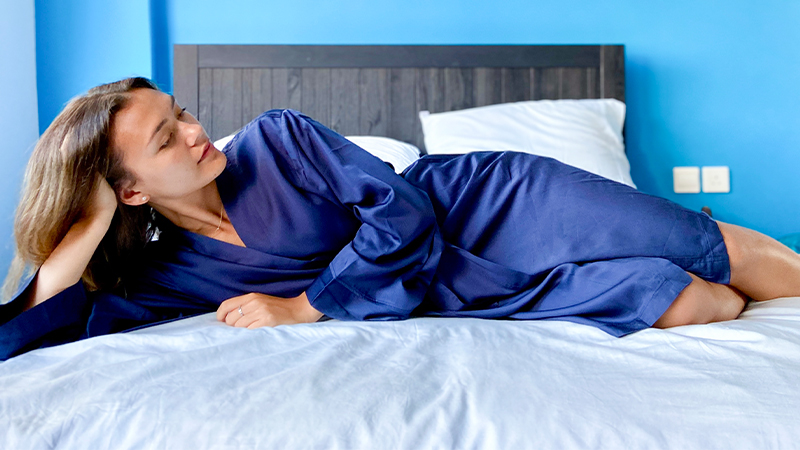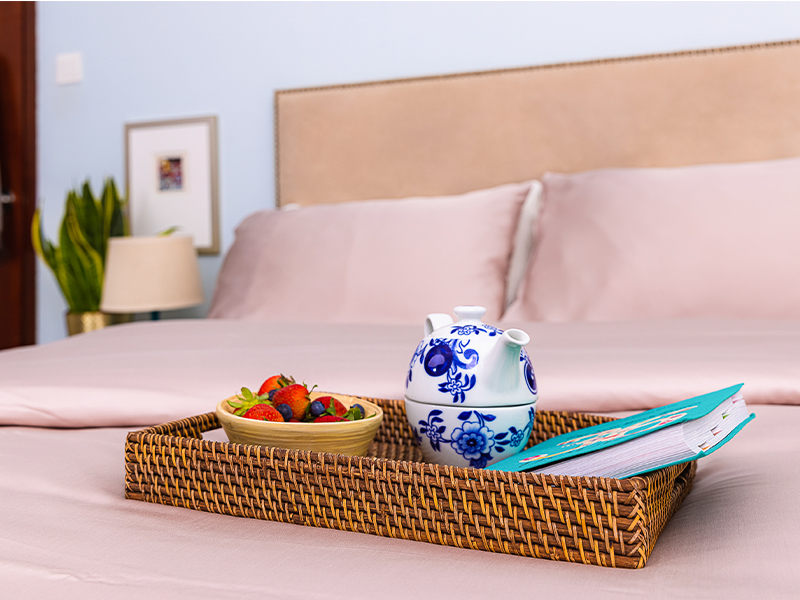Since 2008, Bamboa has offered durable, eco-friendly home and lifestyle products made from bamboo. The brand was founded by British/ German expat JULIA WASHBOURNE, who tells us here about her long-standing interest in sustainability – and in this amazingly versatile plant.

When was the seed first planted (pardon the pun!) for the launch of Bamboa in Hong Kong?
There have been a number “seeds”, in fact! After growing up in the UK, I lived in the German town of Freiburg from age 12. It’s an idyllic university town bordering France and Switzerland, and famous for its advanced environmental practices. Everyone rides bikes, the town is largely car free, there is solar energy and wind power (my parents installed solar panels in our home very early on), and mandatory recycling systems have been in full force since the 80s. These environmentally-friendly surrounds definitely shaped and defined me. I felt very strongly about later finding a profession where I could make a difference and be part of the solution.
The first time I really became aware of bamboo was on a 2004 field trip in the Ivory Coast in West Africa. I was helping a friend with a sustainable coffee and cacao plantation at the time, and as we travelled along dirt roads, we passed through a “tunnel” of gigantic bamboo; it was kilometres and kilometres long, with bamboo reaching up from each side of the road and touching in the middle. I felt the majestic and protective power of these gigantic plants.

Then, after arriving in Hong Kong in 2005, I was awed by the bamboo scaffolding encasing and enveloping so many skyscrapers. This is where bamboo shows off its many fantastic characteristics: it’s resilient (it can survive a typhoon!), harder than steel, yet flexible, light and durable – and, of course, wonderfully sustainable, unlike steel and aluminium with their wasteful and toxic production process. It’s also incredibly versatile, providing thousands of different uses, from housing (flooring, decking and furniture) to bicycles, baskets and sunglasses – and the bamboo fabrics that we specialise in.
Finally, through my role as a purchasing manager that brought me to Hong Kong in the first place, I was in charge of over 5,000 different homeware and household appliances. This meant visiting factories all over Asia to inspect the production processes. It quickly became evident to me that the vast majority of the products are sadly not sustainable. And they’re leaving a huge impact and negative footprint on our planet.
That’s why I decided to create the brand – to promote sustainable home and lifestyle products using one of the fastest-growing plants on the planet, and one that doesn’t require pesticides or irrigation to grow.
What are your key products?
Bamboa offers 100 percent sustainable bamboo lyocell bed sheet sets, fitted sheets, flat sheets, duvet covers and pillow cases. We can also tailor-make bed sheets according to particular dimensions. In addition, we stock bamboo sleep masks, bath robes and camisole sets.

Tell us about the new items you’ve added to the range.
We’re the first to develop pillows and duvets using 100 percent bamboo fibres for the filling and covers. We’re still testing the pillows, but it’s very exciting as we’ll be able to offer a high-quality, cruelty-free, vegan, sustainable option for people buying these items. Until now, you’ve only been able to get animal-based products (made from duck feathers, for example) or synthetic fibres, such as polyester duvets and pillows; these aren’t just bad for the environment but they also lack breathability so they’re not nice against the skin on a nightly basis.
Are there sleep benefits in using bamboo bedding?
Absolutely. It’s not only as soft as silk, but also thermo-regulating – it naturally adapts to your body temperature, cooling you when you’re too hot and warming you when you’re too cold. Furthermore, due to its natural anti-bacterial properties, the bamboo bed sheets stay fresh longer; you only need to change and wash them once or twice a month, saving energy in the process. Bamboo is also hypoallergenic, meaning it calms the skin, and helps prevent dust mites and allergies.
Is it easy to care for?
Very easy! You can machine wash it at 40 degrees. We do advise to hang-dry the sheets, as it will emphasise their long lasting qualities.
Tell us a bit about The Grow Bamboo Initiative.
I founded this initiative with forest and climate specialist Dr Shyam Paudel in September 2020. We have one main mission: to promote bamboo plantations globally in order to fight climate change and empower local communities and economies.
Our first community project is a hectare of bamboo planted in Nepal’s Kavre District, supporting a dozen local families from Dhaneshowri village. We’ve just completed another project along the Bagmati River, which is prone to flooding. With its intricate rhizome root system, bamboo is ideal for preventing soil erosion and floods. Also, after three or four years, villagers can harvest the bamboo and sell it locally, or it can be woven and crafted into daily practical products that are eco-friendly.
What do you like to do in Hong Kong when you’re not working?
I live in Stanley, so I usually go for a swim every morning with my dog. I also spend time at Victoria Recreation Club at Deep Water Bay, where I do ocean sports such as surf skiing, SUP’ing and outrigger canoeing. In winter, I love to hike in Hong Kong’s beautiful nature.
What are you most looking forward to in 2022?
Travel! – especially a visit to our bamboo planting projects in Nepal. I would love to arrange a bamboo-planting field trip for friends. Fingers crossed we can do this next year!
Look out for the new Bamboa boutique at The Oriental Spa at The Landmark Mandarin Oriental from September.
This article first appeared in the Autumn 2021 issue of Expat Living magazine. Subscribe now so you never miss an issue.


